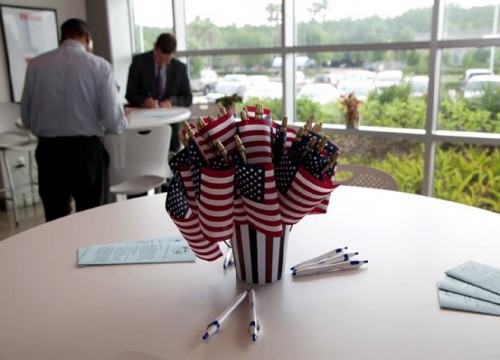We all have our stories and want to share them. Listening to stories of loss is difficult. It requires taking time to slow down and acknowledge the painful emotions. How does telling our stories benefit us? We need to know and express our own stories.
Ang isang Filipino ay pwedeng maging immigrant o permanent resident in the United States of America through these two (2) categories:
- Through a Job
- Through Family

Through a Job
Kapag may offer of permanent employment in the US, you can become an immigrant o permanent resident. In the case of my husband, he came to the US as a tourist to visit his parents. It was a blessing when a company heard about him being a Physical Therapist and offered to process his immigration papers from a tourist to an immigrant or permanent resident under Third Preference EB-3 (for professionals, skilled workers, and other workers) in 2007. The company submitted the form I-140, Immigrant Petition for Alien Worker, to the U.S. Citizenship and Immigration Services o USCIS in August of 2007 and was approved on the same month. However, he was not given a permanent status by the National Visa Center o NVC because of priority date issues. He was only given a Permit to Work while waiting for his immigrant visa. Until now, NVC only gives visas to applicants whose priority dates are on or before October 1, 2006.
In 2012, we were getting impatient. My husband was in the US for 5 years straight and I was in the Philippines waiting. Fortunately, a friend advised him to apply for an immigrant visa in a different category which is the Second Preference EB-2 (persons who are holding advanced degrees or for persons with exceptional ability in the arts, science, or business). He became qualified as a person holding an advanced degree when he practiced Physical Therapy in the US for five (5) years. So when his company submitted another form I-140 for EB-2, USCIS approved the petition. NVC then granted him an immigrant status since the priority date of EB-2 was and still is current.
Immigrant Petition for Alien Worker can still be processed even if the person being petitioned is not yet in the US. Ang mga kababayan nating nasa Pilipinas ay pwedeng maghanap ng employer na willing mag file ng petition for them to become an immigrant o permanent resident of the USA.
Through Family
Noong ma-change ang status ng husband ko to immigrant o permanent resident and he received his green card, he immediately petitioned for me. He filed form I-130, Petition for Alien Relative, at the USCIS. It was approved and forwarded to the NVC. Because his immigrant visa was under EB-2 which is current, NVC immediately sent me and the US Embassy in Manila an Interview Letter of Appointment. It was an instruction for me to appear at the St. Luke’s Medical Center Extension Clinic for a medical exam and at the US Embassy for an interview. Matapos ang interview, I received a packet from the US EMbassy and my passport with the immigrant visa in it through 2Go, their official courier. In less than a week from receipt, my husband and I were reunited in the US.
Children below 21 years old of permanent residents in the US who are still in the Philippines can also be petitioned by filing the same form I-130.
Difficulties arise not because we have a story, perhaps a very sad or painful story, but because we become attached to our stories and make them an essential part of our very selves. We are unsure what to say, how to act, what to do. In our fast-paced, efficiency-focused society, people often do not recognize the benefit of telling or listening to the story. Learning is a discovery process. Experiences alone do not equate to learning. Learning involves paying attention to circumstances. Reading stories aloud to children provide a strong, positive influence and build a foundation for a lifetime of significant benefits. It develops creativity and a child's ability to use their own imagination. The more they listen, the greater the likelihood that they will learn new vocabulary words. Vocabulary, comprehension, and oral language skills develop as children listen to those around them, and these skills are the basis of reading and other literacy skills. Stories connect the past and present to the future. Telling our stories is not an end in itself, but an attempt to release ourselves from them, to evolve and grow beyond them. We tell our stories to transform ourselves, to learn about our history and tell our experiences to transcend them; to use our stories to make a difference in our world; to broaden our perspective to see further than normal; to act beyond a story that may have imprisoned or enslaved us; to live more of our spiritual and earthly potential. Studies suggest that people accept ideas more readily when their minds are in story mode as opposed to when they are in an analytical mind-set. Stories also help us connect with our audiences.
Plenty of examples already show that knowledge sharing is a crucial part of development co-operation. Documented experience highlights the importance of developing a knowledge sharing mechanism to foster such exchanges. The practice of sharing should be heard in every discussion about education. Only in doing so will we learn, and then, perhaps, will have fulfilled our purpose as teachers.